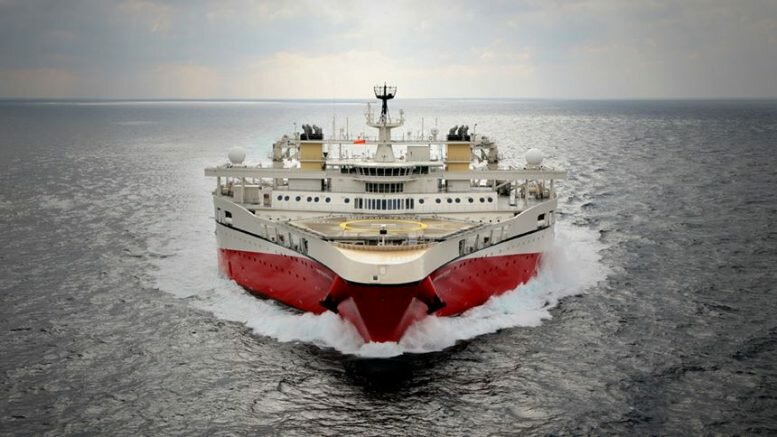Guyana condemns Venezuela for stopping seismic ship
A Norwegian ship hired by the oil company ExxonMobil was stopped by Venezuela’s marine off the coast of Guyana. Guyana condemns the act as both illegal and disrespectful.
The ship «Ramform Tethys» is hired to conduct seismic surveys at an exploration block off the coast of Guyana.
Saturday morning it was stopped by the Venezuelan Navy. They chose not to board the ship and later left the area without further intervention against «Ramform Tethys».
the Ministry of Foreign Affairs in Guyana is responding strongly to the incident nonetheless.
«This is an illegal, aggressive and hostile action by Venezuela, which again shows the threat our western neighbours make for Guyana’s economic development,» The ministry writes in a statement today, Friday.
The country further states that they will pass «this latest illegal action and the obvious disrespect to Guiana’s sovereignty» on to the United Nations.
Has all permissions in order
Norwegian Petroleum Geo-Services (PGS) owns the seismic vessel Ramform Tethys. The company confirms to E24 that it has been stopped by Venezuelan authorities about 145 kilometres from the border with Venezuela.
– We have all the necessary permissions to collect seismic data there on behalf of a customer. After we were approached, we stopped collecting and heading east. Later in the evening, we learned that the Venezuelan naval vessel had retracted from the area where «Ramform Tethys» is, Director of Communications and IR in PGS, Bård Stenberg, tells the newspaper.
So far he cannot say anything about whether the company can continue its work after the Venezuelan withdrawal.
Disputed border
Venezuela and Guyana disagree deeply on where the border between the two countries should go. This conflict has been highlighted after the US owned ExxonMobil drilled its first successful well in Guyana in 2015 and later made another ten discoveries.
Suddenly, Guyana, initially a poor country with only 750,000 inhabitants, became a potential oil power. According to a recent report by the energy research firm Wood MacKenzie, oil deposits may cause Guyana to bypass Venezuela and Mexico and become Latin America’s second largest oil producer after Brazil.
Venezuela has called ExxonMobil’s activity in Guyana illegal. Since the 19th century, the country has claimed the mineral-rich region west of the Essequibo River in Guyana. However, an international court in 1899 decided in favour of Guyana, which was still a British colony at the time.
© NTB scanpix / #Norway Today





